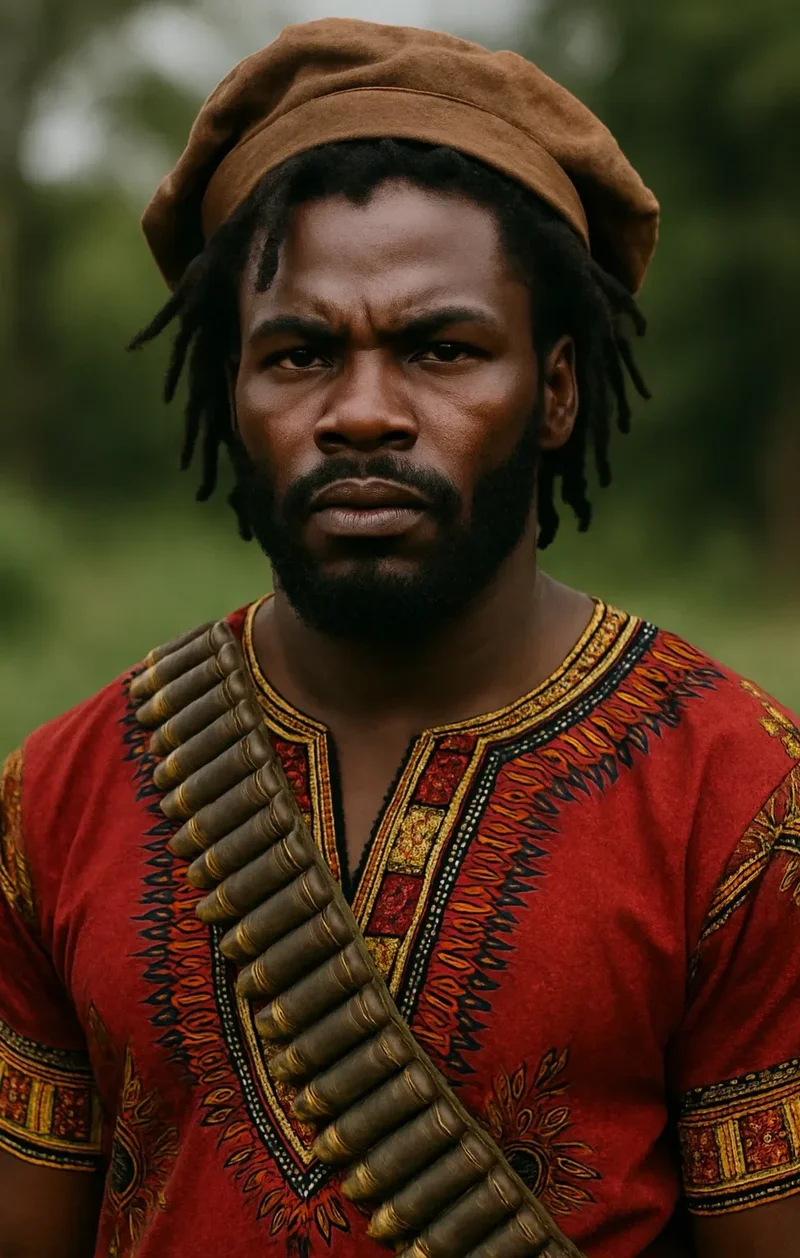Binyamin
Binyamin – 𐤁𐤍𐤉𐤌𐤍
Meaning in Paleo: “Son of the right hand.” Rachel, before she died, named him Ben-Oni (“son of my sorrow”), but Ya’aqob changed his name to Binyamin, signifying strength, favor, and nearness to the right hand of YaHU’aH.
Ya’aqob’s Prophetic Word (Barashiyth):
Binyamin shall ravin as a wolf: in the morning he shall devour the prey, and at night he shall divide the spoil. This speaks of fierce courage and bold leadership—zeal balanced by generosity and strength in battle.
Moshah’s Barakah (Dabarim):
Of Binyamin he said, The beloved of YaHU’aH shall dwell in safety by Him; and YaHU’aH shall cover him all the day long, and he shall dwell between His shoulders. This reveals protection, intimacy, and divine favor in the presence of YaHU’aH.

Fierce Resistance and Covenant Identity: Jamaican Maroons (Caribbean Diaspora)
Tribe of Binyamin (Benjamin)
African Link: Jamaican Maroons (Jamaica & Caribbean)
“Binyamin shall ravin as a wolf: in the morning he shall devour the prey, and at night he shall divide the spoil.”
This prophecy speaks of a fierce, protective nature — a people marked by strength, courage, and strategic might. The Jamaican Maroons, descendants of enslaved Africans who escaped European bondage, fulfill this identity with precision.
Historical Fulfillment
During the 17th–18th centuries, the Maroons successfully resisted British colonial forces in what became the First and Second Maroon Wars. Using guerrilla warfare and intimate knowledge of the land, they secured and defended autonomous communities in Jamaica’s mountainous interior.
This matches the imagery of “devouring the prey” — as they struck swift and decisive blows against their oppressors — and “dividing the spoil,” seen in how they preserved freedom, carved out land rights, and maintained governance structures independent of colonial rule.
Spiritual and Cultural Legacy
Though descended from diverse tribal backgrounds — Akan, Igbo, Kongo — their spiritual practices preserved ancient covenant echoes, particularly in Kumina rituals, which include rhythmic chants, drum-centered worship, and spirit invocation resembling Hebraic expression and community-centered worship.
These traditions, alongside their oral histories, underscore a unique cultural thread rooted in set-apart preservation, unbroken by slavery, war, or colonization.
“And YaHU’aH shall bring thee into Mitsrayim again with ships… and there ye shall be sold unto your enemies for bondmen and bondwomen…”
Binyamin, like Yahudah, was scattered to Babylon/America via the transatlantic slave trade, fulfilling the curses of Dabarim. The Maroons’ survival, resistance, and covenant-style autonomy prove that even in dispersion, the wolf of Binyamin was never tamed.
Binyamin (Jamaican Maroons)
- Historical Context: Escaped slavery, formed sovereign mountain communities, and successfully fought off British military.
- Cultural Practices: Spiritual systems like Kumina preserve ancestral worship patterns; strong oral tradition; covenantal resilience.
Final Fulfillment in the Diaspora
The spirituals sung by African descendants — like “Go Down, Moses” — echo the cry of deliverance, not merely as metaphor but as prophecy fulfilled. These living witnesses confirm that the tribes of Yashar’al are not forgotten, but preserved, purified, and awaiting the final regathering:
“And it shall come to pass in that day, that YaHU’aH shall set His hand again the second time to recover the remnant of His people…”
Additional Sources:

